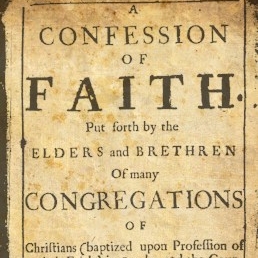On October 22, 2017 Pastor Robert Jeffress of First Baptist Church in Dallas Texas, invited Fox News political commentator Sean Hannity to his church. Sean Hannity wasn’t there to participate in worship of the one true God. He was there to be interviewed in the time slot where the Lord Jesus Christ was to be worshipped. It was a weak political stunt in which Hannity talked about his Roman Catholic upbringing and how he now considers himself “sort of born again,” while Jeffress shamelessly plugged Hannity’s new upcoming film. I hate to throw the word around, but was this not blasphemous? The way the congregation roared and rose to their feet when Hannity was being introduced made my stomach turn. It felt like idol worship.
I have no problem with Christians being politically active. But I have a problem with the desecration of the Lord’s Day. Instead of feeding his sheep, Robert Jeffress decided to give his congregation more of the same politics that they get every other day of the week. Granted, the way the crowd drooled over Sean Hannity tells us they have itching ears and they were getting what they wanted. But how dare a man call himself a minister of the gospel and give his people Hannity instead of Christ.
This whole ordeal is merely the working out of a major underlying problem in the state of American Evangelicalism today. Most people and churches believe that they can worship God any way that they want, so long as it is not forbidden within Scripture. The belief is that worship is our individual preference and that anything we do with good intentions is acceptable to God. But many things that go on within the corporate worship setting of our churches would be called blasphemous by the hosts of heaven gathered around the throne of God who sing “holy, holy, holy” without end. God does not simply want to be worshiped, and however we want to express that is cool with him. God has specific instructions on how he is to be worshiped by his specific people on his specific day. Interviewing a political talk show host and plugging a movie is not listed in those instructions. We are not to worship God however we want, we are to worship God as He wants to be worshiped.
Why has this principle or doctrine been so neglected, forgotten, and smitten today? Partly because of itching ears, and partly because we have abandoned the historical confessions of the Christian faith. Christian orthodoxy has a rich history of believers who have fought many battles of doctrine and church practice and have left documents for us hammering out very clear summations of the teaching of Scripture. There are several great confessions of faith that we have had handed down to us from those who came before us (I will let you do your own homework on them. I personally hold mostly to the 1689 Second London Baptist Confession), and we would do well to listen to them. Christianity is not a new religion, and it is not a mutable one. If these confessions summarize the truth of Scripture in the 17th century, then they summarize the truth of Scripture in the 21st.
If the modern church wasn’t too arrogant or so ignorant of the great confessions of faith, we would not have problems like First Baptist, Dallas. The principle that says that we are not to worship God however we see fit, but rather we are to worship God as He sees fit, is clearly laid out for us in most of the great confessions of the Christian faith. This principle is not just an opinion or a preference, it is the summation of a principle truth of Scripture. That is what the confession writers believed, and that is what I believe.
I will close by quoting a portion of chapter 22 (Of Religious Worship and the Sabbath Day) from the 1689 London Baptist Confession:
“…the acceptable way of worshipping the true God, is instituted by himself, and so limited by his own revealed will, that he may not be worshipped according to the imagination and devices of men, nor the suggestions of Satan, under any visible representations, or any other way not prescribed in the Holy Scriptures… Religious worship is to be given to God the Father, Son, and Holy Spirit, and to him alone; not to angels, saints, or any other creatures; and since the fall, not without a mediator, nor in the mediation of any other but Christ alone… The reading of the Scriptures, preaching, and hearing the Word of God, teaching and admonishing one another in psalms, hymns, and spiritual songs, singing with grace in our hearts to the Lord; as also the administration of baptism, and the Lord’s supper, are all parts of religious worship of God, to be performed in obedience to him, with understanding, faith, reverence, and godly fear; moreover, solemn humiliation, with fastings, and thanksgivings, upon special occasions, ought to be used in an holy and religious manner…”

Leave a Reply